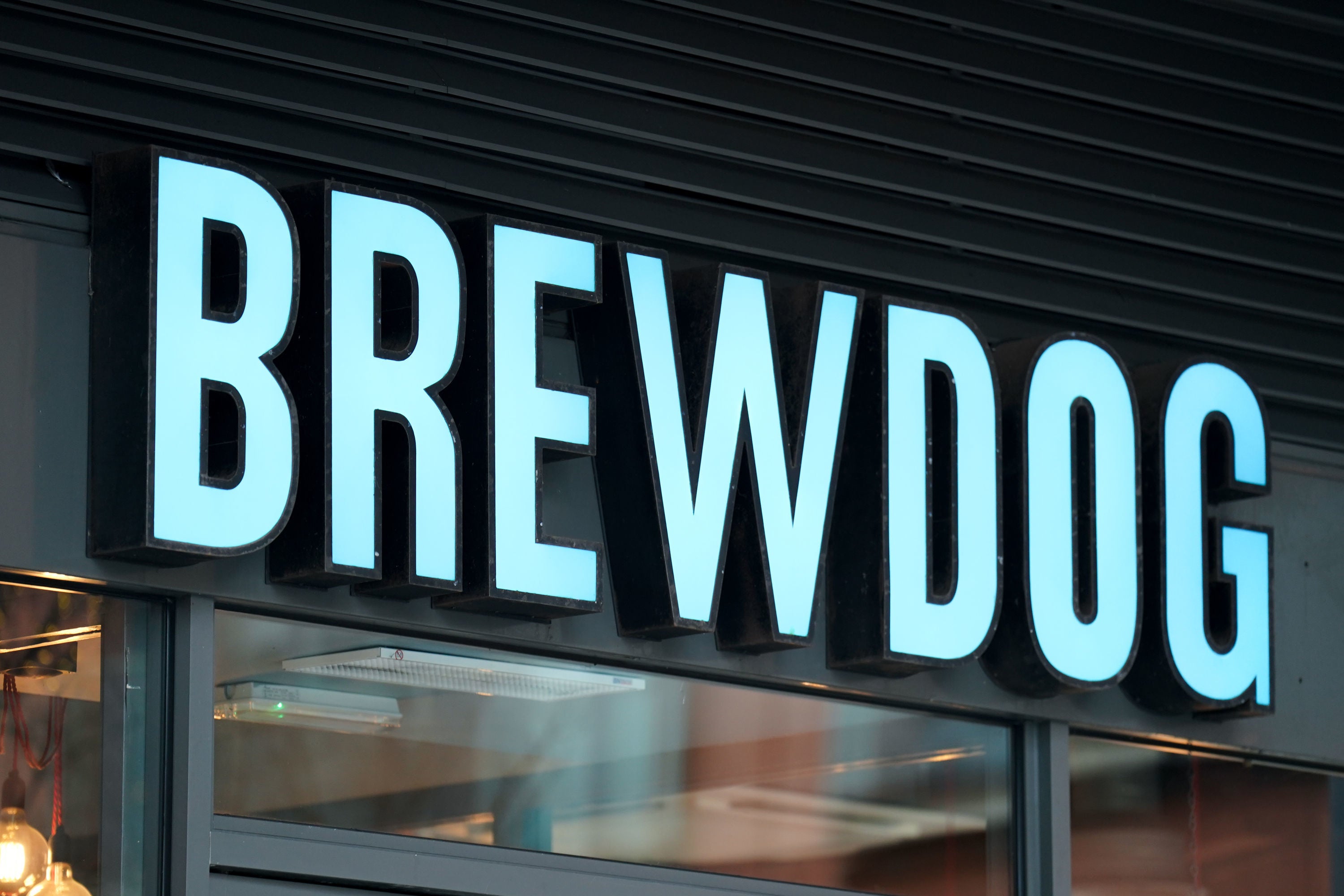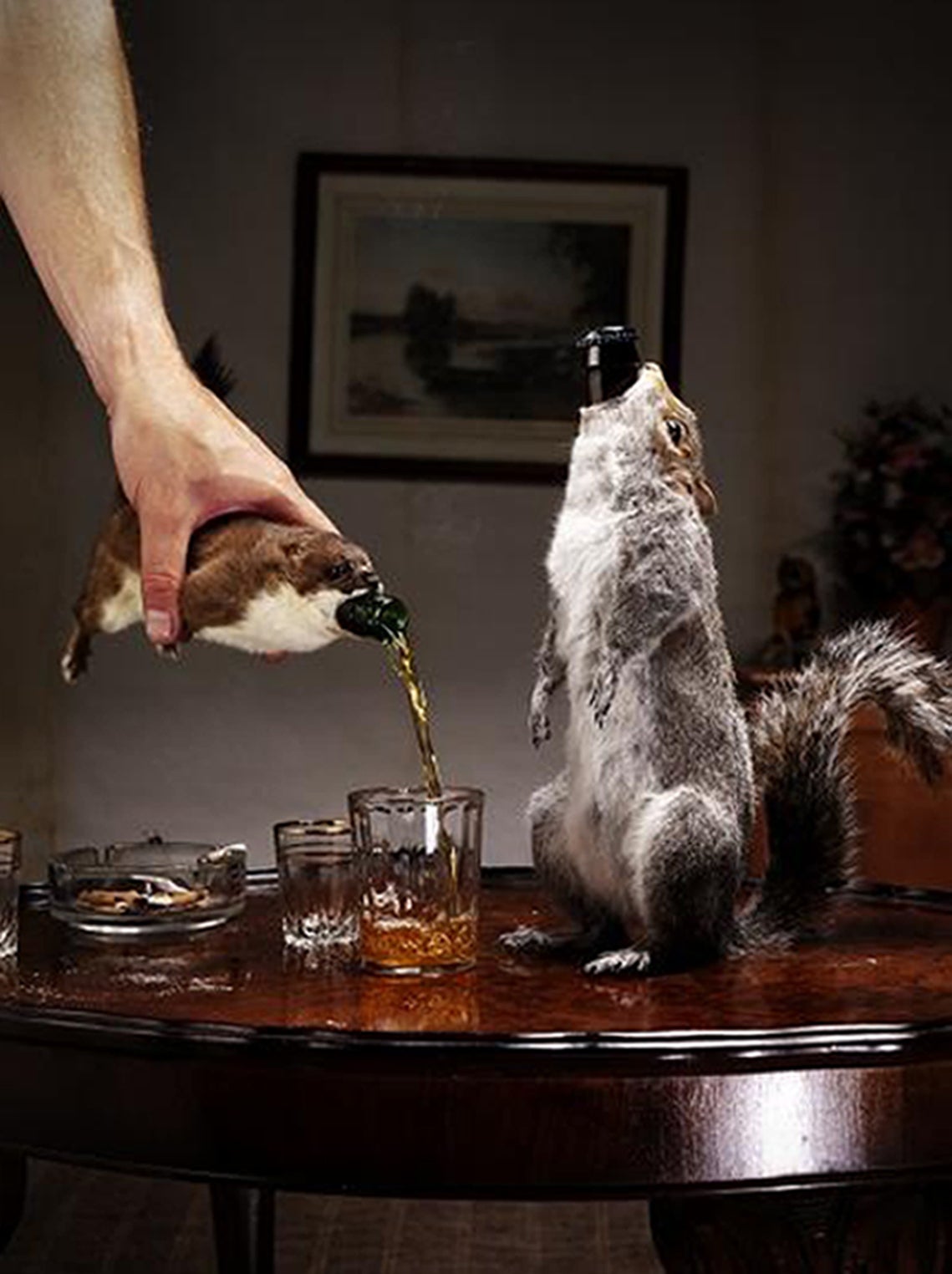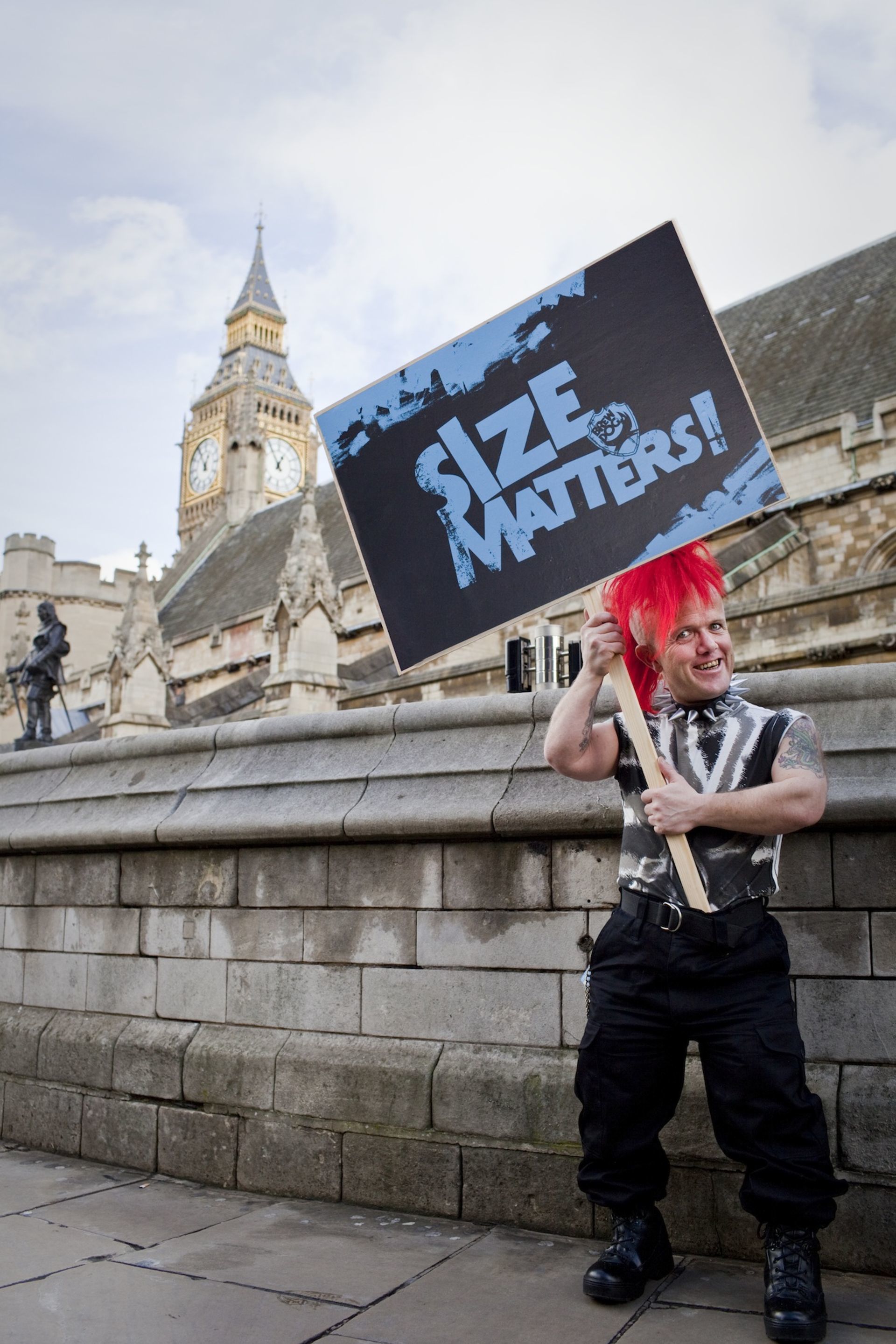The rise and fall of BrewDog: how the anarchic brewery went from progressive to problematic
The unorthodox Scottish brewers have made a name for themselves over the last 17 years by making headlines with bold and outlandish marketing strategies, often in response to rulings and criticisms. But they’ll have a hard time coming back from their latest blunder, writes Hannah Twiggs


Your support helps us to tell the story
From reproductive rights to climate change to Big Tech, The Independent is on the ground when the story is developing. Whether it's investigating the financials of Elon Musk's pro-Trump PAC or producing our latest documentary, 'The A Word', which shines a light on the American women fighting for reproductive rights, we know how important it is to parse out the facts from the messaging.
At such a critical moment in US history, we need reporters on the ground. Your donation allows us to keep sending journalists to speak to both sides of the story.
The Independent is trusted by Americans across the entire political spectrum. And unlike many other quality news outlets, we choose not to lock Americans out of our reporting and analysis with paywalls. We believe quality journalism should be available to everyone, paid for by those who can afford it.
Your support makes all the difference.Oh dear, BrewDog.
A case of: “How could it possibly get any worse?” And then it did.
In a letter to staff, Brewdog Bars CEO James Brown said all new workers would now be paid £11.44 per hour nationwide – the national living wage. That means bar staff outside London will see their pay go up by around 5 per cent. Doesn’t sound so bad? It also means staff in London will have their hourly pay frozen – a real-terms pay cut.
Apparently, a “unique bonus scheme” that includes a whole extra £1 an hour if they surpass customer service standards for that month and “pawternity” leave, offered by a BrewDog spokesperson after the news, couldn’t soften the blow. In a city coping with higher-than-average living costs and rents more than double the national average, staff were understandably fuming.
Brown said it was a “hard decision” they had to make in the face of a trading loss in 2023. Could that have anything to do with a string of other missteps of late, perhaps? For example, losing its B Corp status after complaints of a working “culture of fear”, facing criticism over its “hypocritical” stance on the 2022 World Cup (for much the same reasons) and one of its founders being accused of inappropriate behaviour, which he denies. Oh, and also the beer being pretty rank.
Outlandish marketing stunts and a penchant for bending the rules used to be what made BrewDog stand out. Actually, it’s still what makes them stand out, albeit for far more nefarious reasons.

It all started in 2007, back when microbrewing (and white men with a “let’s f*** s*** up” attitude) was trendy and not annoying. Fed up with the UK beer market, Martin Dickie and James Watt founded BrewDog in a small fishing port in northeast Scotland, when they were just 24. With the help of some scary bank loans, they started brewing tiny batches, filling bottles by hand and selling their first beers at local markets out of a beaten-up old van. It was a very “them vs us” ethos; us, the independent rebels taking on them, the boardroom breweries. It all sounds very noble. Oh, how the tables turn. They often do.
But it worked. A deal with Tesco got them off the ground, and they rolled up their sleeves and got started with what they really came here to do. Make noise and irritate people.
The loudest and most memorable of which was probably a campaign called The End of History, for which whopping 55 per cent ABV bottles of beer were stuffed down the necks of taxidermy roadkill. The world’s strongest and most expensive (at £500-700) beer at the time, by way of the corpses of stouts, squirrels and hares. This was a gift for the top 10 devotees in the US who had invested more than $20,000 in the firm. How nice. If only I’d invested! I’m sad to have missed the deer’s head dispenser that came a year later. Or the taxidermy cats that were chucked over the City of London from a helicopter to celebrate another crowdfunding run.
Loud and proud campaigns were their thing, much to the chagrin of the Portman Group, a social responsibility body for alcohol in the UK (they’ve got something of the British antipathy towards anything remotely fun about them). They first accused BrewDog of aggressive marketing tactics, or rather simply pointed them out. BrewDog won the case and in response launched Speedball – in reference to a drug cocktail – to “give them something worth banning us for”. It was, and renamed Dogma. I wonder what they’ll be naming their response to this latest criticism. Cost-of-Giving a Crap? Poverty Pours? BrewDog, DM me. There was also a kerfuffle in Tokyo over BrewDog claiming to have produced the strongest beer ever made, at 18.2 per cent. Again, they responded by putting out the 32 per cent Tactical Nuclear Penguin, and later the 41 per cent Sink the Bismarck. They never miss an opportunity, do they?

Some campaigns seemed just for fun. There was the time Dickie and Watt (not a watershed comedy duo) drove a tank down Camden High Street to announce their first opening south of the border. Or when they put out the Royal Virility Performance for Prince William and Kate’s wedding, a beer that contained Viagra and horny goat weed. After an awards snub, they projected an image of themselves naked but for a single BrewDog beer onto the Houses of Parliament. To promote their Elvis Juice, Dickie and Watt tried (and failed) to legally change their names by Deed Poll to Elvis. They also hired a person with dwarfism to take up residence outside Westminster for a week with a placard that read “Size Matters” to campaign for two-third measures in pubs. Surprisingly, that one worked and no one had much to say about it.
Other campaigns lent more towards the political. Portman returned in 2014 to attack BrewDog for encouraging “anti-social behaviour and rapid drinking”. No… really? In response to Russia’s laws to tackle what they called gay “propaganda”, BrewDog launched Hello My Name is Vladimir with an image of the Russian president saying it was “not for gays” ahead of the Sochi Winter Olympics. Sticking with sport, they also launched a hibiscus with beer dedicated to Sepp Blatter as an unofficial bid for Scotland to host the 2022 World Cup. It came with the instructions: “Best served from brown paper envelopes to aid drinking with greased palms,” in reference to the Fifa president’s dodgy dealings.
But the mask of woke beer brewers with a point to make began to slip. In one crowdfunding ad, Dickie and Watt dressed up as sex workers. A petition saying the video mocked sex workers as well as transgender women garnered more than 36,000 signatures. The launch of Pink IPA, a limited edition bottle of its best-selling beer, coincided with International Women’s Day and intended to highlight the gender pay gap with the phrase… wait for it… “Beer for Girls” and a 20 per cent discount for anyone who identifies as female. The Portman Group lashed back, ruling that it breached its code of conduct. BrewDog said: “We’re as bothered about this Portman Group ruling as we are any other – that is, not at all.”

What goes up, must come down. BrewDog’s rise had been aggressive, outrageous, sometimes ingenious. It stands to reason that their downfall would be too. Years of bad behaviour began to catch up with them. In 2021, a group of more than 100 former BrewDog employees published an open letter accusing the company of fostering a “culture of fear” in which workers were bullied and “treated like objects”. The letter claimed the Scottish brewer had cut corners on health and safety, made promises it didn’t live up to, and created a “toxic” culture that left some staff suffering from mental illness. “Being treated like a human being was sadly not always a given for those working at BrewDog,” the letter alleged. There was no deliberately named new beer in retaliation, but somewhat of an apology and then a warning: that the allegations posed a “threat to all of our livelihoods”.
A year later, BrewDog was the subject of a BBC Disclosure episode, in which former employees interviewed said they found working there a “miserable and uncomfortable experience” and some customers said “they regret investing their savings in BrewDog”. The Guardian later revealed that Watt had hired private investigators to obtain information on people he believed were propagating a smear campaign against him.
This, obviously, brought criticism of BrewDog’s “anti-sponsorship” of the 2022 Fifa World Cup, in which they attacked Qatar for their mistreatment of migrant workers and criminalisation of homosexuality. By the end of the year, BrewDog had lost its B Corp status, which offers certification of a company’s ethical commitment to the environment, community and staff, though a B Lab spokesperson couldn’t comment as to why. Not that we needed them to.
Needless to say, these antics don’t make BrewDog immune to the soaring costs affecting businesses in the industry: rising energy bills as well as the rising price of hops, malt, carbon dioxide, cans, bottles and packaging. The firm reported an operating loss of £24m in 2022, and though we won’t see results for 2023 until later this year, the company’s comments on the latest news indicate it might be in a downward spiral: “Even with this strong performance over Christmas, as a wider business there is no hiding from the fact that in 2023 we made a trading loss and despite many efforts in the past 12 months to reduce our spending we still need to find more ways to get this business back to profitability.”
But it’s not a good look. Nothing says it more than a Twitter video from the firm from 2015 lambasting bigger drinks companies for buying into the British craft beer boon, in which Watt says: “Mega corporations care about costs, market share, dividends, valuations. They don’t care about beer.” Sure, but does BrewDog care about its people?
Join our commenting forum
Join thought-provoking conversations, follow other Independent readers and see their replies
Comments